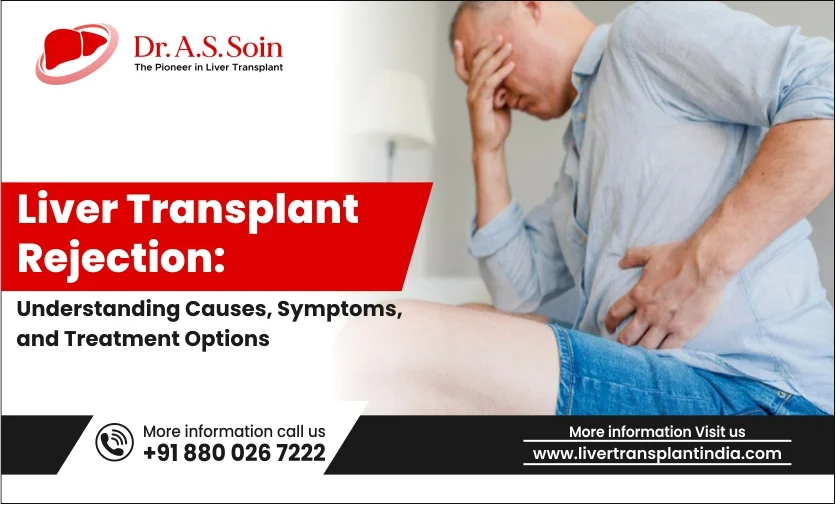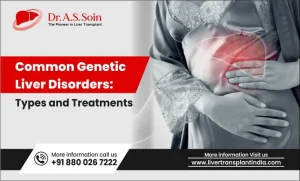For patients with end-stage liver disease, a liver transplant represents a crucial opportunity for extended life and improved quality of life. This critical procedure involves replacing the diseased liver with a healthy one from either a deceased or living donor. Despite its life-saving potential, liver transplantation carries a significant risk of organ rejection. However, the liver, being an immunomodulatory organ, generally experiences lower rejection rates compared to other transplanted organs.
Liver rejection occurs when the recipient’s immune system recognizes the transplanted liver as foreign and mounts an immune response against it. This immune response can damage the liver and compromise its function. Several factors contribute to liver rejection:
- Immune Response: The primary cause of rejection is the immune system’s reaction to the transplanted organ. The immune system identifies the new liver as non-self and activates immune cells to attack it.
- HLA Mismatch: Human leukocyte antigens (HLA) are proteins on the surface of cells that play a critical role in immune response regulation. A mismatch between the HLA of the donor liver and the recipient increases the risk of rejection. For liver transplants, HLA matching is not typically performed; only blood group compatibility is routinely ensured. The liver’s immunomodulatory properties allow it to adjust and balance the recipient’s immune system, thereby significantly reducing the dosage for immunosuppressants.
- Insufficient Immunosuppression: Post-transplant, patients are prescribed immunosuppressive medications to prevent rejection. Incorrect administration or insufficient dosage of these medications increases the risk of rejection.
- Infections: Infections can trigger an immune response that may inadvertently target the transplanted liver.
- Other Medical Conditions: Conditions such as autoimmune diseases or other underlying health issues can elevate the risk of rejection.
Table of Contents
ToggleTypes of Liver Transplant Rejection
- Hyperacute Rejection
- Timeframe: Occurs within minutes to hours post-transplantation.
- Cause: Typically due to pre-existing antibodies in the recipient that immediately attack the donor liver.
- Prevalence: Rare, owing to pre-transplant cross-matching and antibody screening.
- Acute Cellular Rejection
- Timeframe: Usually occurs within the first few weeks to months post-transplant but can happen at any time.
- Cause: T-cells in the recipient’s immune system attack the donor liver cells.
- Symptoms: Fever, fatigue, jaundice, dark urine, pruritus, abdominal pain, and elevated liver enzymes.
- Treatment: Increased dosages of immunosuppressive medications, such as corticosteroids or other immunosuppressants.
- Chronic Rejection
- Timeframe: Develops over months to years post-transplant.
- Cause: Gradual damage and scarring of the bile ducts (chronic ductopenic rejection) and blood vessels within the liver.
- Symptoms: Progressive loss of liver function, jaundice, bile duct strictures, and fibrosis.
- Treatment: Often challenging to treat; management focuses on adjusting immunosuppression and addressing complications. In some cases, retransplantation may be necessary.
- Antibody-Mediated Rejection (AMR)
- Timeframe: Can occur at any time post-transplant but is less common.
- Cause: Recipient’s antibodies target the donor liver’s blood vessels.
- Symptoms: Similar to acute cellular rejection but may include vascular issues, such as thrombosis and infarction.
- Treatment: Plasmapheresis, intravenous immunoglobulin (IVIG), and modifications to immunosuppressive therapy.
Symptoms of Liver Transplant Rejection
Suspicion of rejection arises when liver function tests (LFTs) are abnormal despite adequate immunosuppression. Symptoms can range from being asymptomatic to vague and are easily mistaken for other post-surgical complications or infections. Key symptoms include:
- Unexplained Fatigue and Weakness: Indicative of improper liver function.
- Loss of Appetite and Nausea: Rejection can irritate the digestive system.
- Fever: Can signal infection or rejection.
- Jaundice: Yellowing of the skin and eyes due to bilirubin buildup.
- Dark Urine and Pale Stools: Indicate impaired liver function.
- Right Upper Abdominal Pain: Discomfort or tenderness in the liver area.
Diagnosis and Monitoring
- Liver Biopsy: Considered the gold standard for diagnosing rejection.
- Blood Tests: Monitoring LFTs such as ALT, AST, bilirubin, and alkaline phosphatase levels.
- Imaging: Ultrasound or other imaging techniques to assess liver structure and blood flow.
- Clinical Assessment: Monitoring for signs and symptoms of rejection.
Long-Term Management After Liver Transplant
Long-term management involves several key factors to ensure the health and longevity of the transplanted liver:
- Medication Adherence
- Immunosuppressive Medications: Take as prescribed to prevent rejection.
- Regular Monitoring: Routine blood tests to monitor drug levels and adjust dosages as needed.
- Managing Side Effects: Report any concerns to your healthcare provider.
- Regular Follow-Up
- Scheduled Visits: Regular appointments with your transplant team.
- Blood Tests: Frequent checks of LFTs and other relevant blood work.
- Liver Biopsies: Periodic biopsies may be necessary to detect subclinical rejection.
- Healthy Lifestyle
- Balanced Diet: Eat a diet rich in fruits, vegetables, lean proteins, and whole grains.
- Hydration: Maintain adequate fluid intake.
- Weight Management: Maintain a healthy weight.
- Exercise: Engage in regular physical activity.
- Infection Prevention
- Vaccinations: Stay up-to-date with vaccinations, including seasonal flu shots.
- Hygiene: Practice good hygiene.
- Avoiding Sick Contacts: Reduce the risk of infection by staying away from sick individuals.
- Monitoring for Complications
- Rejection: Be vigilant for signs and symptoms.
- Infections: Recognize and seek prompt treatment.
- Recurrence of Original Disease: Close monitoring is required.
- Managing Comorbidities
- Diabetes: Monitor and manage blood sugar levels.
- Hypertension: Regularly check blood pressure.
- Hyperlipidemia: Monitor cholesterol levels and follow treatments.
- Mental and Emotional Health
- Support Groups: Participate in support groups.
- Counseling: Seek professional help if needed.
- Avoiding Harmful Substances
- Alcohol: Avoid alcohol consumption.
- Smoking: Do not smoke.
- Recreational Drugs: Avoid illicit drugs.
- Education and Awareness
- Understand Your Condition: Educate yourself about your transplant and medications.
- Emergency Plan: Have a plan for medical emergencies.
- Regular Screening
- Cancer Screening: Follow recommended protocols, especially for skin cancer.
- Bone Health: Monitor bone density.
By adhering to these guidelines, liver transplant recipients can optimize their long-term health and reduce the risk of complications. Regular communication with the transplant team and adherence to medical advice are crucial for successful long-term management.








